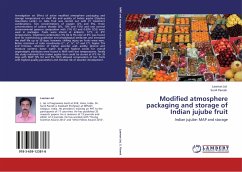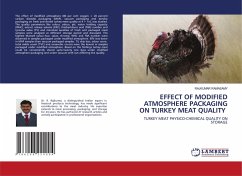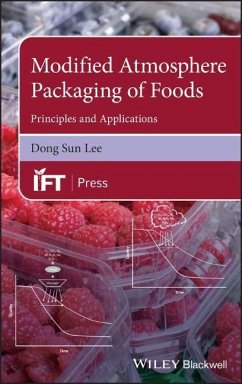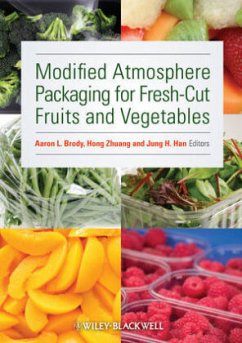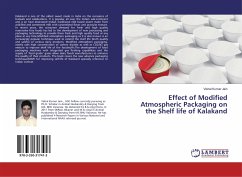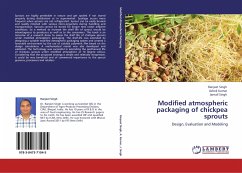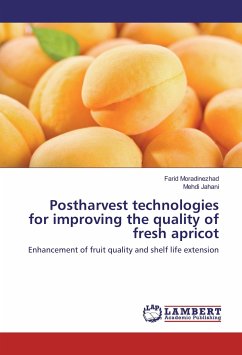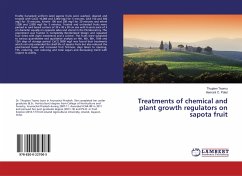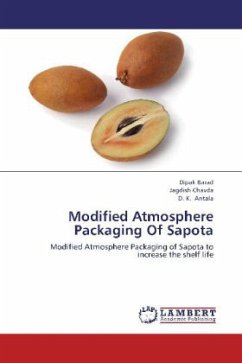
Modified Atmosphere Packaging Of Sapota
Modified Atmosphere Packaging of Sapota to increase the shelf life
Versandkostenfrei!
Versandfertig in 6-10 Tagen
32,99 €
inkl. MwSt.

PAYBACK Punkte
16 °P sammeln!
The present project work was undertaken to study the performance of the developed Modified Atmosphere Packaging Technology to increase the shelf life of sapota. The effect of various thicknesses of polyethylene bags, gas proportion and storage temperatures were observed and data were recorded at seven days interval for various physical, biochemical and organeleptic parameters. The study revealed that the shelf life of sapota was increased for 49 days with packed them in 25 µ polyethylene bag under 5% O2 + 10% CO2 mixture and stored at 6 ºC temperature without much changes in physical, bioche...
The present project work was undertaken to study the performance of the developed Modified Atmosphere Packaging Technology to increase the shelf life of sapota. The effect of various thicknesses of polyethylene bags, gas proportion and storage temperatures were observed and data were recorded at seven days interval for various physical, biochemical and organeleptic parameters. The study revealed that the shelf life of sapota was increased for 49 days with packed them in 25 µ polyethylene bag under 5% O2 + 10% CO2 mixture and stored at 6 ºC temperature without much changes in physical, biochemical and organeleptic parameters. Sapota can be stored for 35 days for fruits packed in 25 µ polyethylene bag in all gas concentration and stored at 11 ºC and fruits ripened properly during storage. The shelf life was increased for 56 days for fruits packed in 40 & 60 µ polyethylene bags in all gas concentration and stored at 6 ºC but, fruits did not ripen properly. Thus, it is recommended from the study that sapota can be stored up to 49 days during transportation and export with specified storage conditions without much change in its physical, biochemical and organeleptic parameters.



